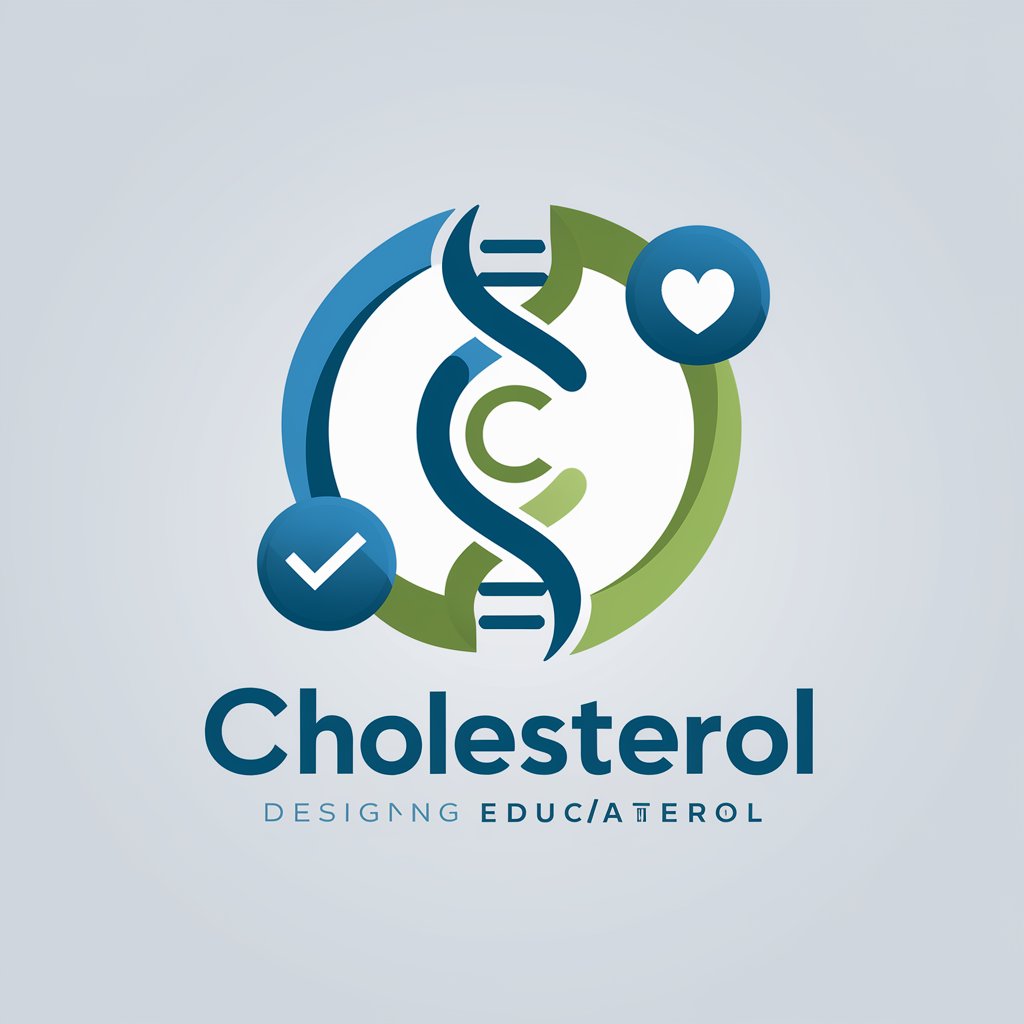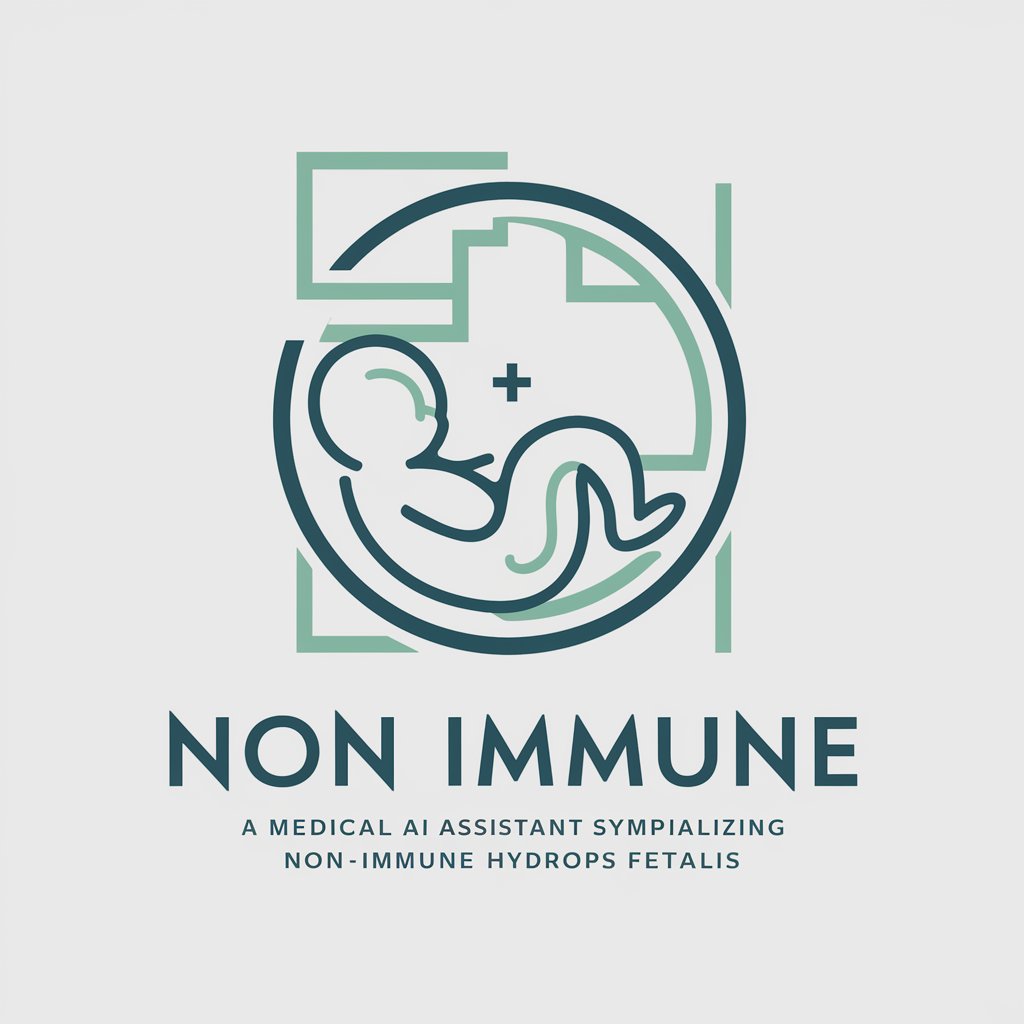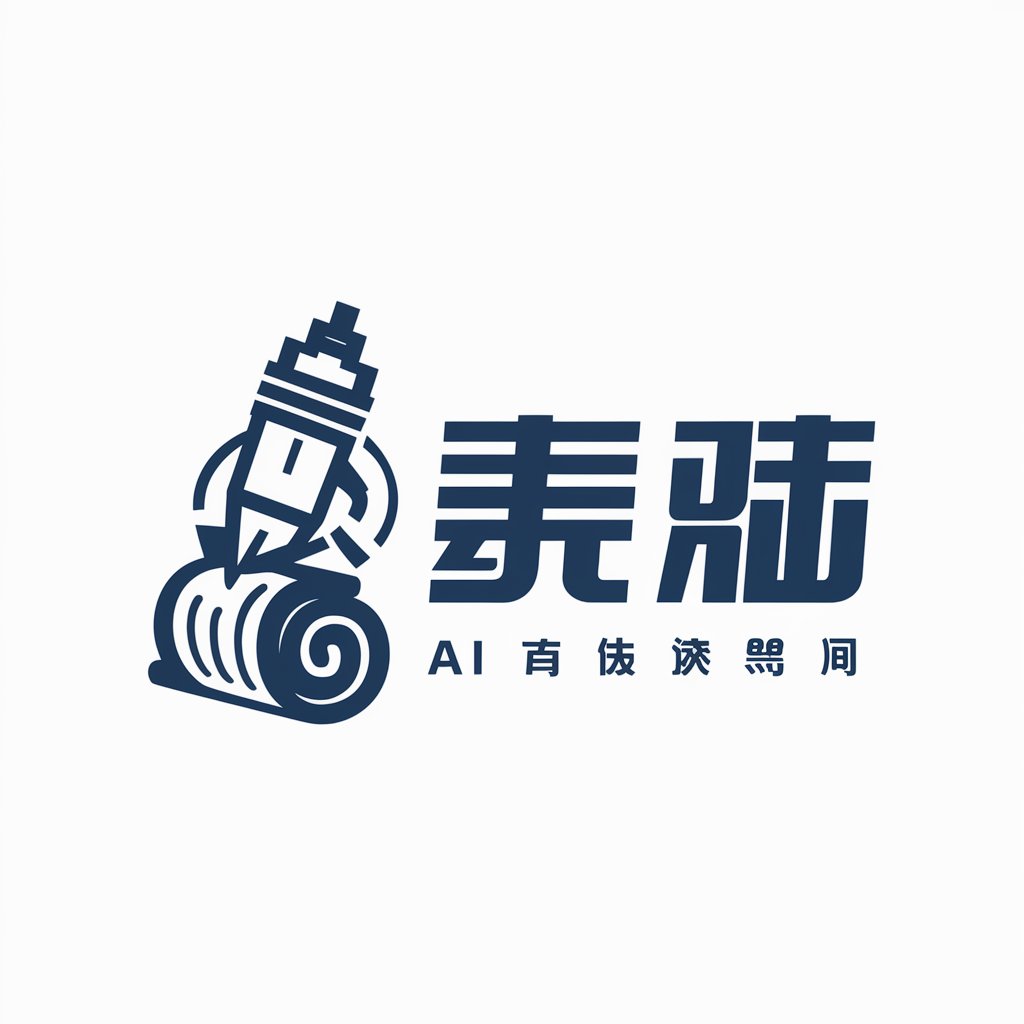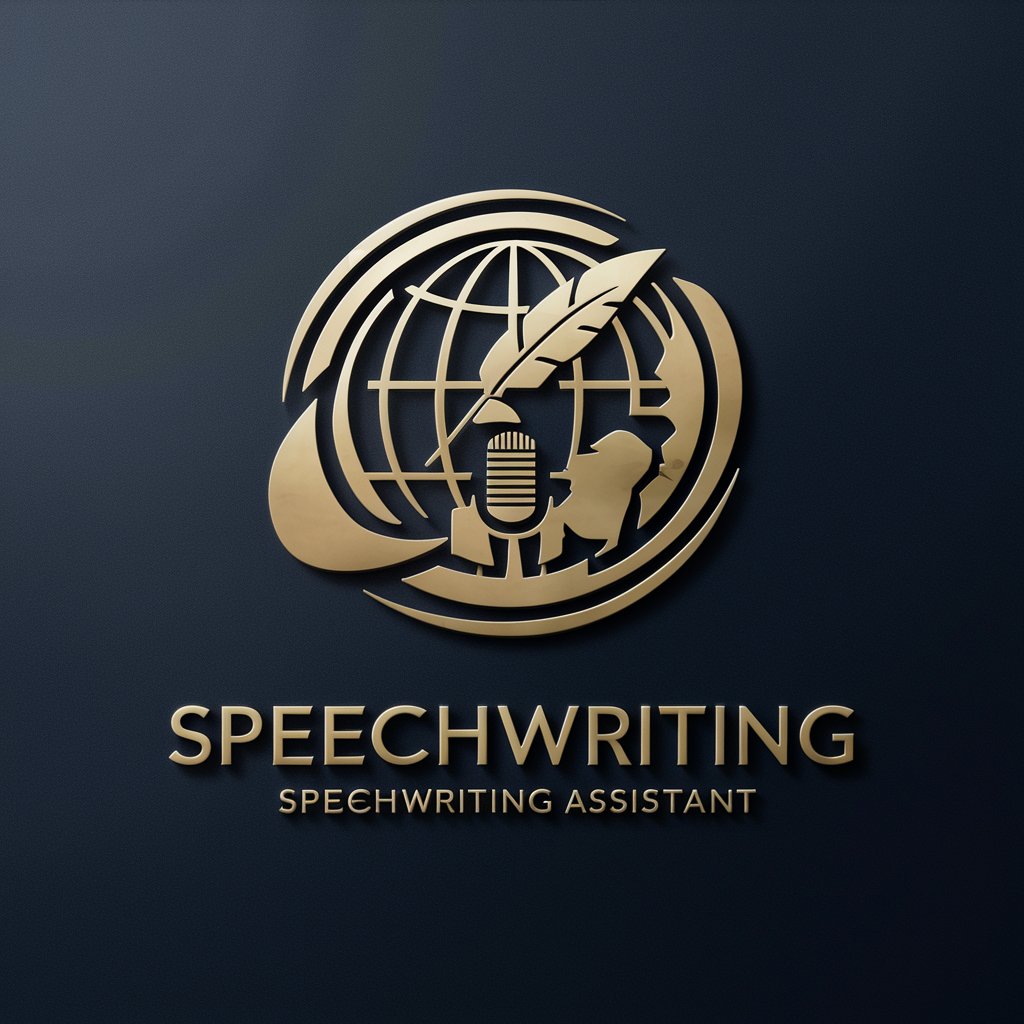Cholesterol - Cholesterol Education

Welcome! I'm here to help you understand cholesterol and how to manage it effectively.
Empowering Heart Health with AI
Can you explain the difference between LDL and HDL cholesterol?
What are the health effects of high cholesterol levels?
How can diet help manage cholesterol levels?
What are the common medications for controlling cholesterol?
Get Embed Code
Understanding Cholesterol
Cholesterol is a waxy, fat-like substance found in all cells of the body, necessary for making hormones, vitamin D, and substances that help digest foods. It's vital for the structural integrity of cell membranes and plays a crucial role in the synthesis of steroid hormones, bile acids, and vitamin D. Despite its essential functions, high levels of cholesterol, particularly low-density lipoprotein (LDL) cholesterol, are associated with an increased risk of cardiovascular diseases, such as heart attack and stroke. Conversely, high-density lipoprotein (HDL) cholesterol helps remove other forms of cholesterol from the bloodstream, thus protecting against these diseases. An example illustrating cholesterol's dual nature involves its role in hormone production, essential for bodily functions, versus its potential to accumulate in blood vessels, leading to atherosclerosis if levels are unbalanced. Powered by ChatGPT-4o。

Key Functions of Cholesterol
Structural component of cell membranes
Example
Cholesterol helps maintain the fluidity and integrity of cell membranes, enabling cells to function properly.
Scenario
In the human body, cholesterol's presence in cell membranes allows for proper cell signaling and nutrient transport across the membrane, critical for overall health and cellular function.
Precursor to vital compounds
Example
Cholesterol is essential for the synthesis of steroid hormones, bile acids, and vitamin D.
Scenario
For instance, cholesterol is converted into bile acids in the liver, aiding in the digestion and absorption of dietary fats. Additionally, it serves as a precursor for steroid hormones like estrogen, testosterone, and cortisol, which regulate a wide range of physiological processes, including stress response, reproductive functions, and metabolism.
Regulation of cholesterol levels
Example
HDL, often referred to as 'good' cholesterol, plays a role in transporting cholesterol back to the liver for excretion or re-utilization.
Scenario
This protective mechanism helps maintain cardiovascular health by reducing the buildup of plaque in arteries, thereby lowering the risk of heart disease and stroke.
Who Benefits from Understanding Cholesterol?
Individuals at risk for cardiovascular diseases
People with a family history of heart disease, high blood pressure, or those who have been identified with high cholesterol levels would benefit from in-depth knowledge about cholesterol management to reduce their risk.
Healthcare professionals
Doctors, nurses, and dietitians can use detailed cholesterol information to provide better care, guidance, and dietary recommendations to patients with or at risk of cardiovascular conditions.
General health-conscious individuals
Anyone interested in maintaining or improving their health, particularly heart health, can benefit from understanding how cholesterol functions and impacts the body, guiding dietary and lifestyle choices.

Understanding and Managing Your Cholesterol
1
Consult a healthcare professional to assess your cholesterol levels through a blood test.
2
Understand the difference between 'good' HDL and 'bad' LDL cholesterol, and their effects on health.
3
Incorporate a heart-healthy diet rich in fruits, vegetables, whole grains, and lean proteins.
4
Engage in regular physical activity, aiming for at least 150 minutes of moderate exercise per week.
5
Consider medication as prescribed by your doctor if lifestyle changes are insufficient to lower your cholesterol.
Try other advanced and practical GPTs
محب الباستا
Discover the world of pasta with AI

Non Immune
Empowering Medical Insights with AI

Trading Code Expert
Empowering trading with AI-driven insights.

论文代写
Crafting Your Academic Success with AI

Trend Predictor GPT
Predicting Trends with AI Power

Cyber Sentinel
Empowering Ethical Hacking with AI

PyBot Builder and Python Coder
Empowering chatbots with AI-driven Python coding.

Gravitas
Elevate Your Words with AI-Powered Eloquence

Nutkin's Narrator
Crafting Whimsical Nature Tales

🛍️ ShopfyMaximizerGPT 📈
Elevate Your Shopify Experience with AI

Historical Battles Storyteller
Reviving History with AI-Powered Storytelling

"Lawyer"
Empowering Legal Decisions with AI

Frequently Asked Questions about Cholesterol
What is cholesterol?
Cholesterol is a waxy substance found in your blood, necessary for building healthy cells, but high levels can increase heart disease risk.
What are the types of cholesterol?
The main types are LDL (low-density lipoprotein) or 'bad' cholesterol, which can build up in arteries, and HDL (high-density lipoprotein) or 'good' cholesterol, which helps remove LDL.
How can diet affect cholesterol levels?
Eating saturated fats, trans fats, and dietary cholesterol can raise your cholesterol levels, while a diet rich in fiber can help lower them.
Can exercise influence cholesterol levels?
Yes, regular physical activity can raise HDL ('good') cholesterol and lower LDL ('bad') cholesterol and triglycerides.
Are medications necessary to manage cholesterol?
For some individuals, lifestyle changes are not enough to lower cholesterol levels, and medications like statins may be prescribed.
